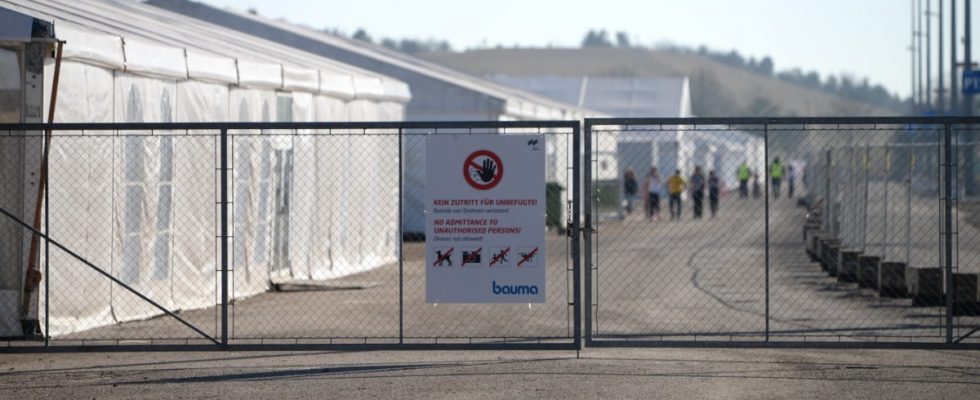When there is a shortage of accommodation for refugees, the state capital resorts to a tried and tested solution: a tent city on the open-air grounds of the Munich trade fair. This was already the case in late spring 2022, when 1,200 refugees from Ukraine had to vacate their accommodation in the exhibition halls and found a new temporary home in a tent city in the exhibition car park. Now, in coordination with the government of Upper Bavaria, the city is reopening a tent city for refugees on December 4th.
The overnight accommodation is heated and can accommodate up to 2000 people. This means that the increasing number of refugees arriving in Munich can currently be taken into account. The useful life is currently planned until June 2024. As with shared accommodation, the operation and support of the facility would be guaranteed by external operators and independent welfare providers, the city announced in its Rathaus-Umschau newsletter.
In the spring, the trade fair with its halls and outdoor area became the largest emergency accommodation for refugees from Ukraine. At that time, people were accommodated in halls C5 and C6, where a total of 2,300 camp beds and mattresses were available. If necessary, the capacity could have been expanded to 4,000 places, according to the city’s experts. At the same time, the city, together with aid organizations and volunteers, organized more than 6,000 bed spaces in hotels and other emergency accommodation. “This is an impressive achievement,” said Mayor Dieter Reiter (SPD), praising the achievements of everyone involved.
However, the city is now encountering increasing difficulties in adequately accommodating the refugees. A good month ago there was strong protest when the administration decided to build two new refugee accommodations for Johanneskirchen. One on Glücksburger Straße with 190 seats, another on Mirabellenweg with 284 seats. They are intended for asylum seekers or refugees from Ukraine. Many residents consider this to be oversized, as Johanneskirchen only has 2,500 residents. In addition, according to criticism, 400 refugees are already being accommodated in the district in a former hotel at the S-Bahn station.
Similar voices could be heard from several neighborhoods on the outskirts of the city. The most common accusation is that the city administration is only trying to set up accommodation on the outskirts of the city. The city is now also moving to central locations, for example the former Hotel Sheraton Westpark on Heimeranplatz.

